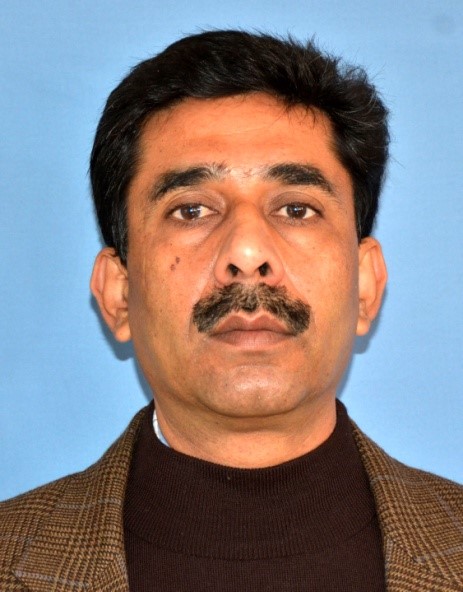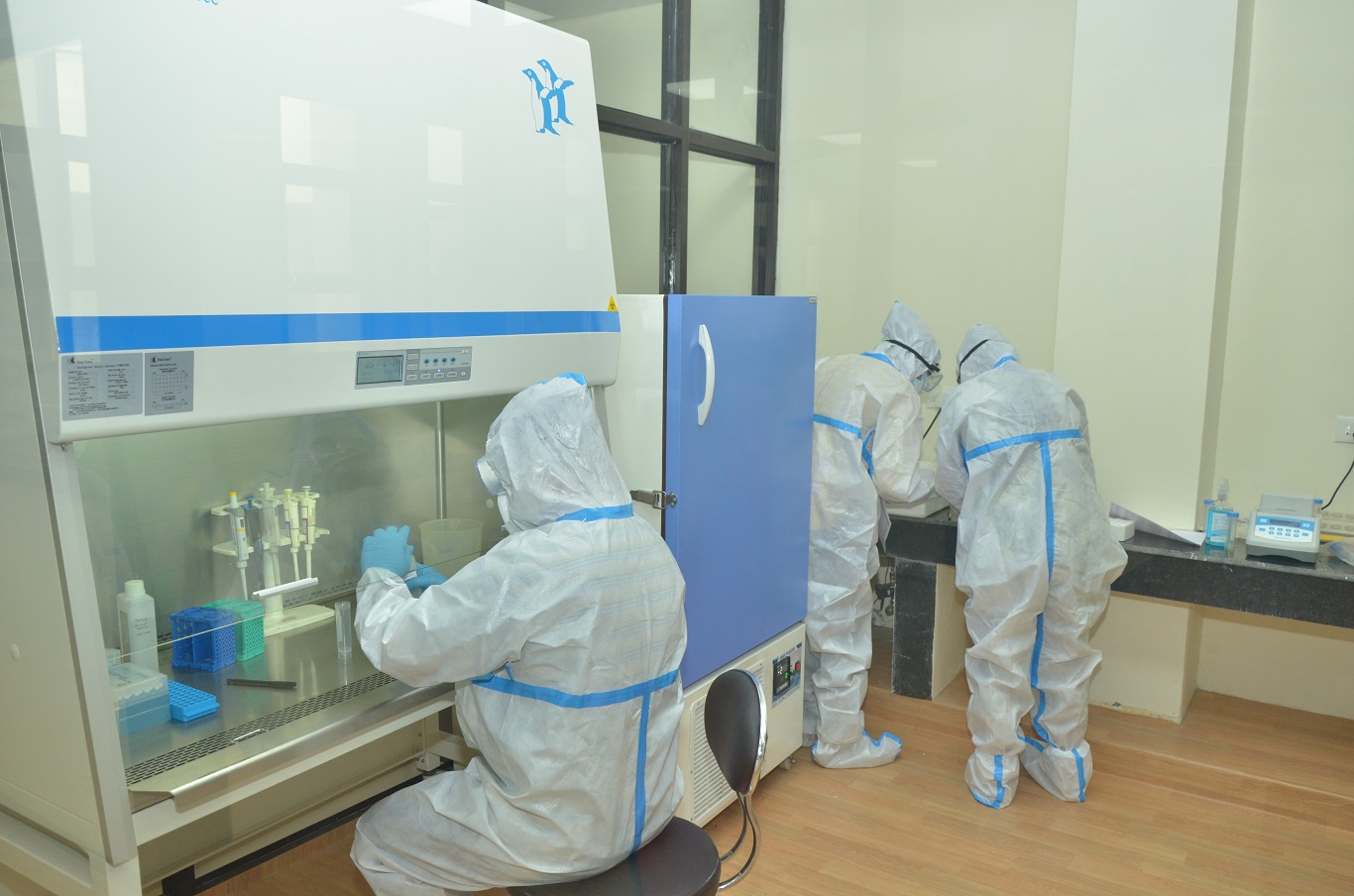College of Animal Biotechnology
Know About the College
The 'College of Animal Biotechnology' is a constituent college of the 'Guru Angad Dev Veterinary and Animal Sciences University' and is situated on the main campus of the University at Ludhiana. The erstwhile 'Post-Graduate Institute of Veterinary Education and Research (PGIVER)' was upgraded to 'School of Animal Biotechnology' in 2010. The school was further upgraded to the existing 'College of Animal Biotechnology' in 2019 with an objective to focus on research and teaching programs. The college aims towards directing the research to the needs of the farmers in the field of animal sciences by promoting translational research in the area of genomics, proteomics, bioinformatics, vaccinology, diagnostics, molecular biology, stem and cell biology.
The college offers a graduate program B.Tech. (Biotechnology) with 30 seats and post graduate programs viz. M.V.Sc. (Animal Biotechnology) / M.Sc. (Biotechnology) and 'M.Sc. (Biotechnology) with specialization in Animal Biotechnology' with a total of 17 seats and Ph.D. (Animal Biotechnology)/ Ph.D. (Biotechnology) with an intake capacity of 4 seats for students with bachelor degree in Biotechnology/Medical/Life Sciences/Biochemistry/Microbiology/Molecular Genetics/ B.F.Sc. The duration of the graduate program is for 4 years; the Masters program for 2 years, and the Ph.D. program for 3 years.
The college is also striving to conduct translational research in the various fields of biotechnology having direct or indirect implications on animals, particularly livestock. The college harbors numerous laboratories which are well equipped with sophisticated equipment to work in various fields of biotechnology and life sciences.
Mandate
- To undertake teaching, research, and training/extension in various facets of animal biotechnology, genomics, bioinformatics, microbial and environmental biotechnology.
- To generate scientific expertise and human resources trained for catering to institutional / industrial research and development requirements.
- To develop specialized and state-of-the-art laboratory facilities for research in the cutting-edge areas of biotechnology relevant to veterinary and allied sciences.
- To identify and characterize genes implicated in growth, production, reproduction, as well as stress and diseases.
- Harnessing omics and computational biotechnology in genetic improvement of farm animals.
- Development of molecular and serological diagnostics including point-of-care tests (POCTs), and new generation vaccines.
- To utilize stem and cell biology for enhancing lactation performance and regenerative therapy.
Goals
- To develop rapid point-of-care (POC) diagnostics with improved sensitivity and specificity for detection of infectious and non-infectious diseases.
- To develop improved, multi-component vaccines for economically important diseases of animals.
- To identify genome-wide markers for early and accurate selection for economically important traits, disease resistance, and parentage determination of animals.
- To facilitate research on stem cells for regenerative therapy in livestock.
- To develop and disseminate artificial intelligence and IoT driven, farmer-friendly technologies for smart data recording and precision farming.
Dean, College of Animal Biotechnology

Dr. Suresh Kumar Sharma
Address: Dean, College of Animal Biotechnology, Guru Angad Dev Veterinary and Animal Sciences University, Ludhiana
Email: deancoabt@gadvasu.in
Call: +91-161-2553356, 2553357
Brief Introduction
Dr. Suresh Kumar Sharma, took the additional charge of Dean, College of Animal BioTechnology at Guru Angad Dev Veterinary & Animal Sciences University, Ludhiana.
Former Dean/ Directors
|
S. No. |
Name |
Duration on the post |
Date of Retirement |
Photograph |
|
1. |
Dr. G.S. Brah |
01-02-2012 to 30-11-2013 As Director, School of Animal Biotechnology |
30-11-2013 |
|
|
2. |
Dr. Ramneek |
03-12-2013 to 06-10-2020 As Director, School of Animal Biotechnology |
--- |
|
|
3. |
Dr. YS Malik |
07-10-2020 to 15-04-2024 As Director, School of Animal Biotechnology |
--- |
|
Academic Facilities
- The College of Animal Biotechnology has five lecture halls equipped well with modern audio-visual teaching aids including LED projectors, computer podiums, and smart displays.
- The college also has one committee room with a seating capacity for 40+ individuals, well equipped with up-to-date presentation facilities with video conferencing, broadband connectivity, air conditioning, and furnishing.
- The college has one mini-auditorium with a sitting capacity for 100+ individuals, well equipped with up-to-date presentation facilities with broadband connectivity, air conditioning, and furnishing.
- The college also has one library which has books (paperback/hardcover >354 and e-Books >22), meeting the requirements of UG, PG and Ph.D students. The thesis of the students of college are available in the college library.
Research Facilities
The College of Animal Biotechnology has the following laboratories:
- Molecular Diagnostics and Vaccinology Laboratory
- Cell and Molecular Biology Laboratory
- Animal Stem Cells Laboratory
- Leptospira Laboratory
- Animal Genomics Laboratory
- Proteomics and Metabolomics Laboratory
- Centralized Research Laboratory
Some of the specialized equipments in laboratories
Real Time PCR
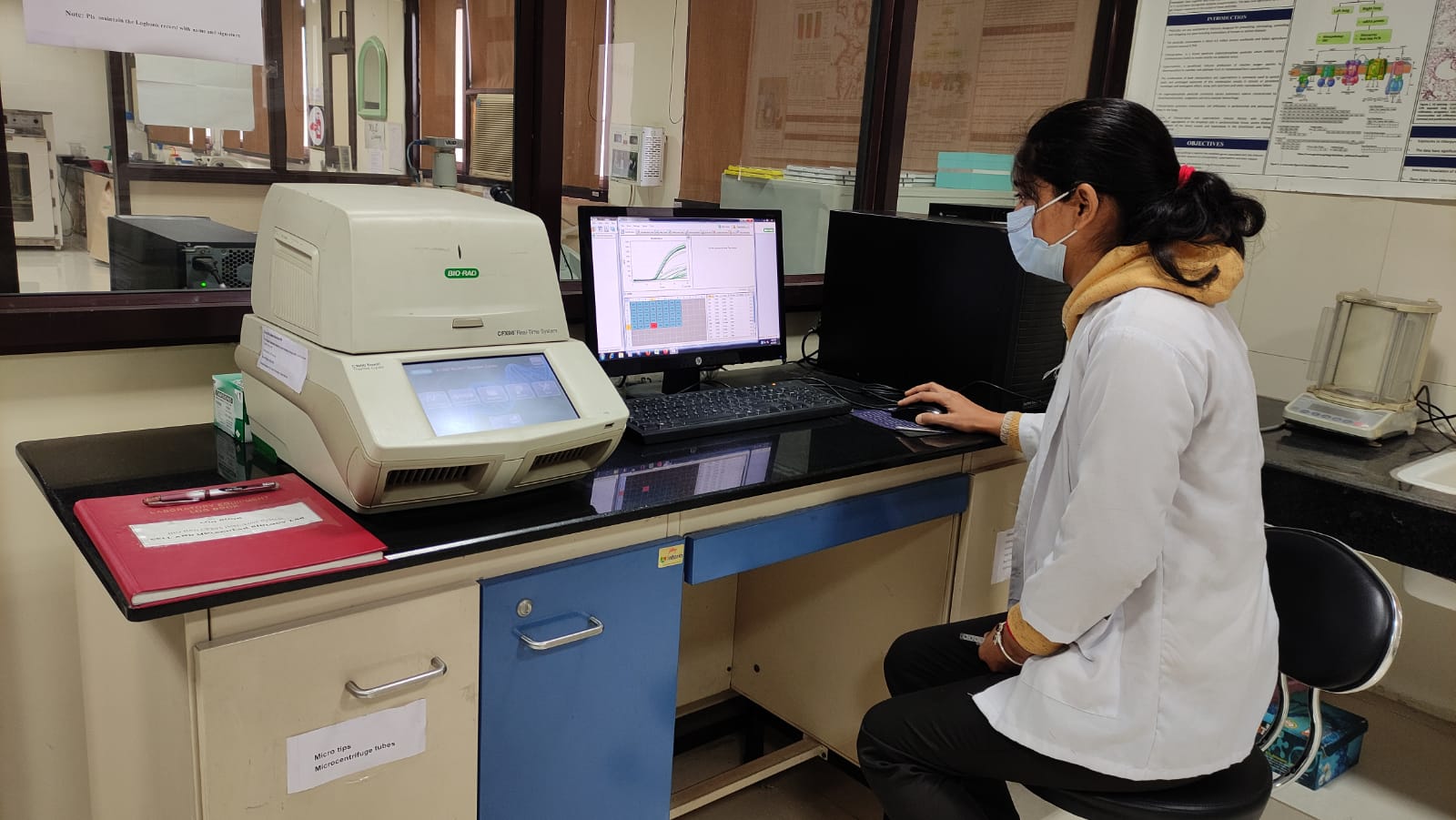
PCR Thermocycler
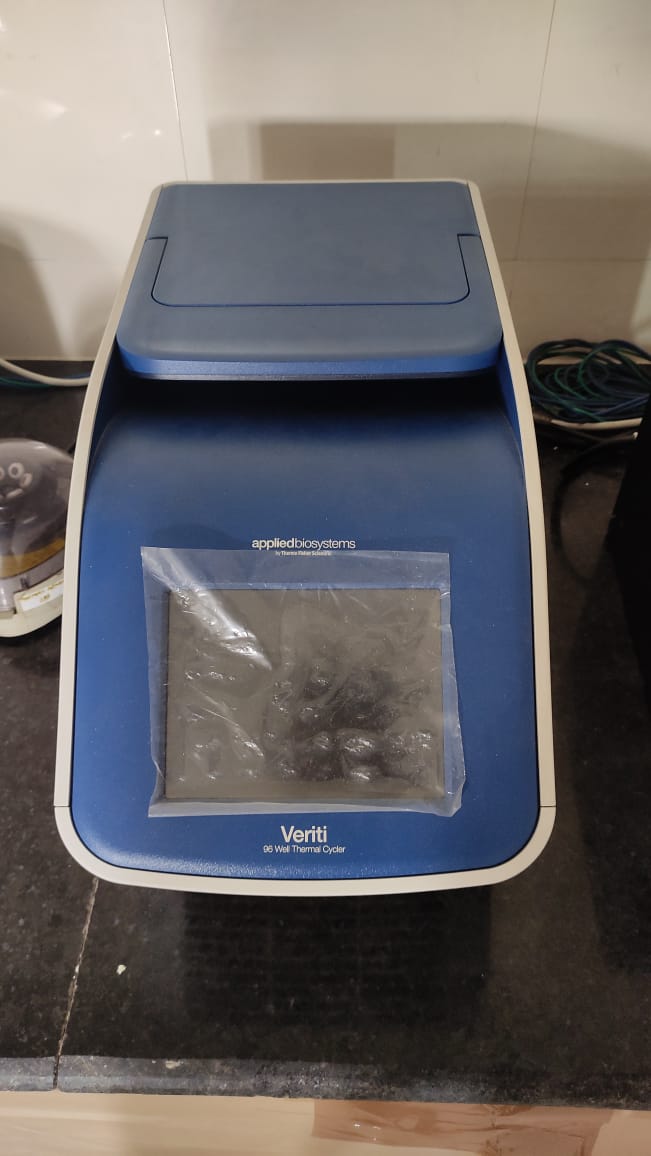
NanoDrop One
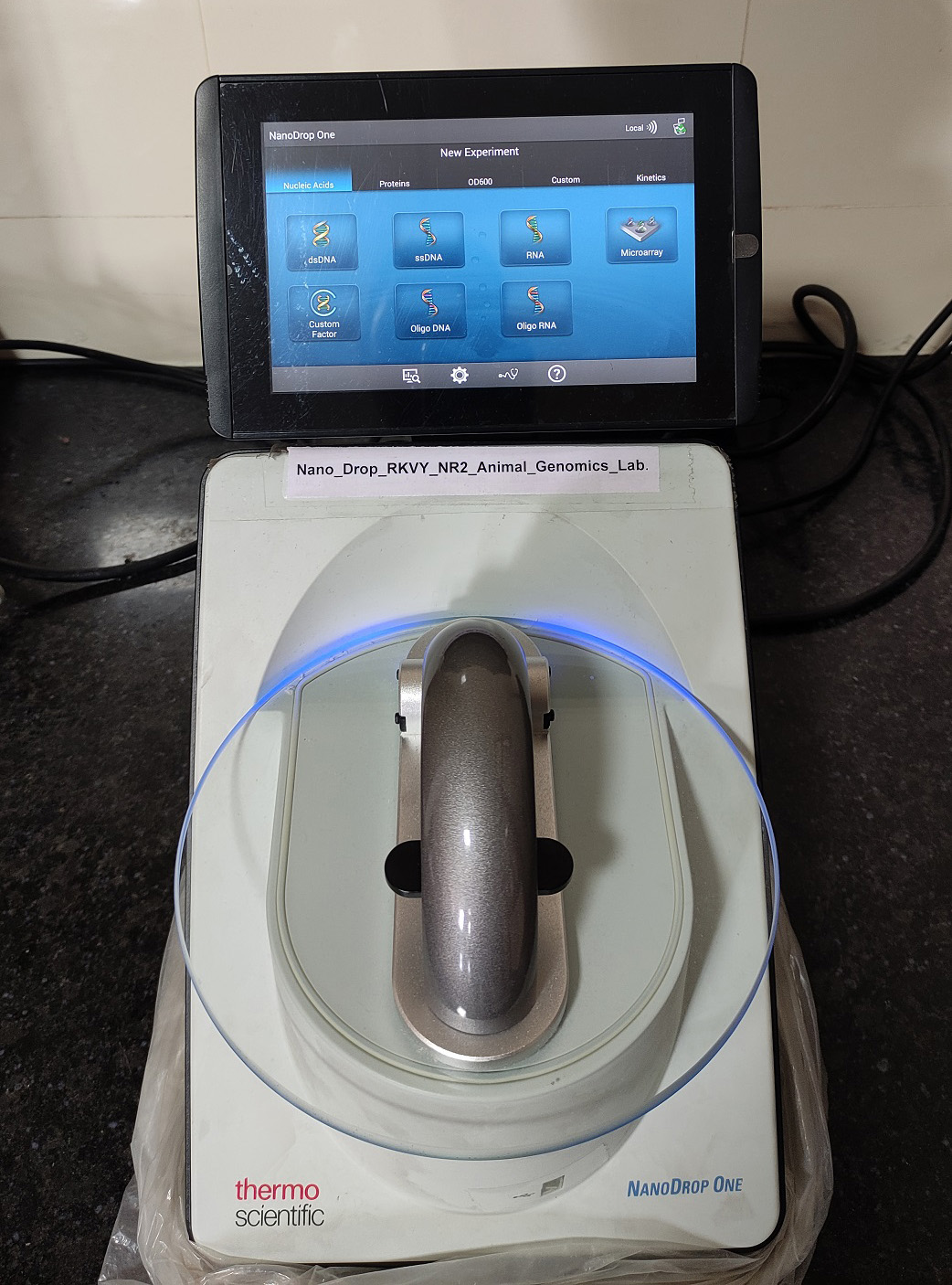
Plate Reader and Hybrid Plate reader with Chemilumiuscence
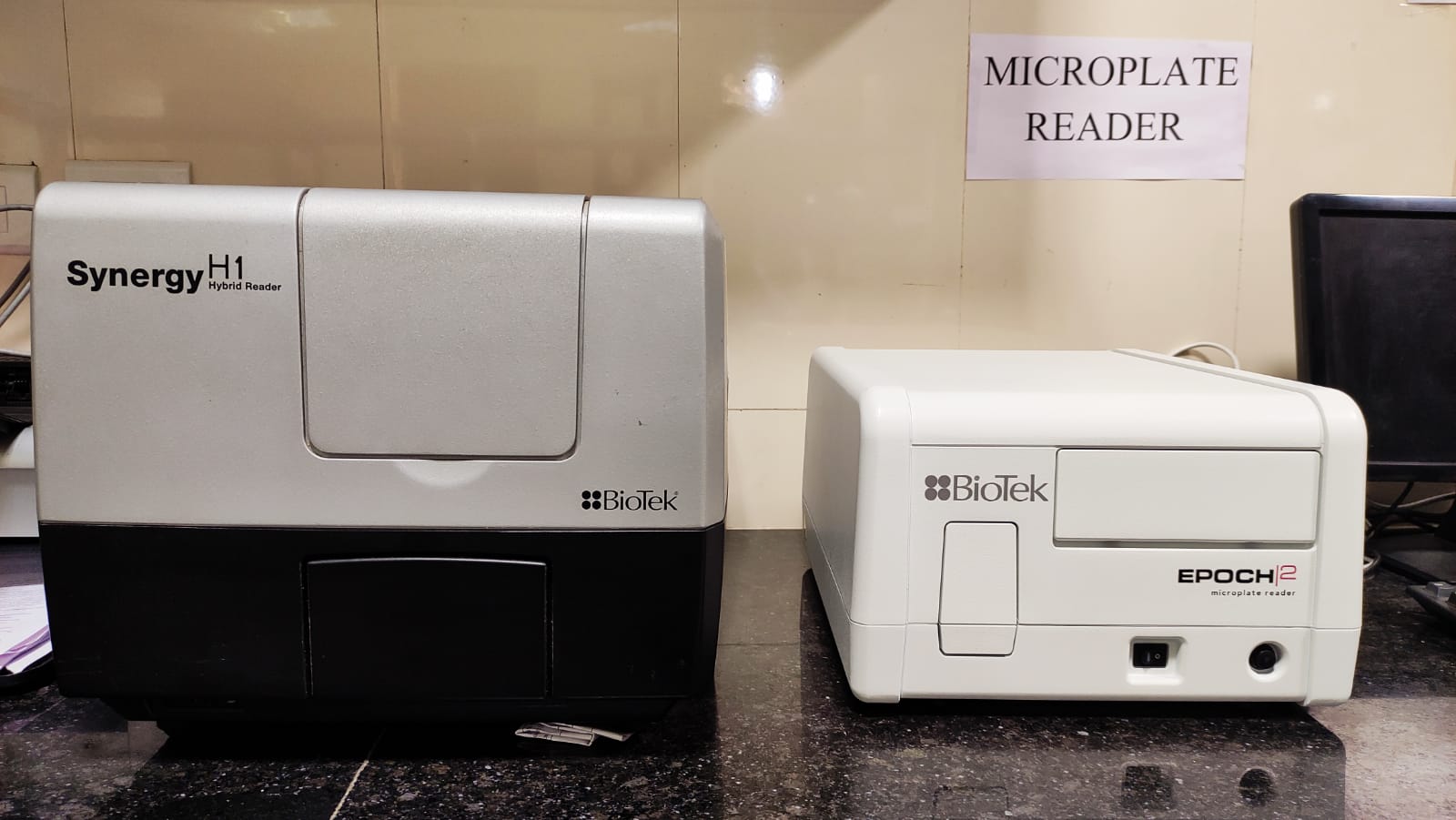
Dark Field Microscope
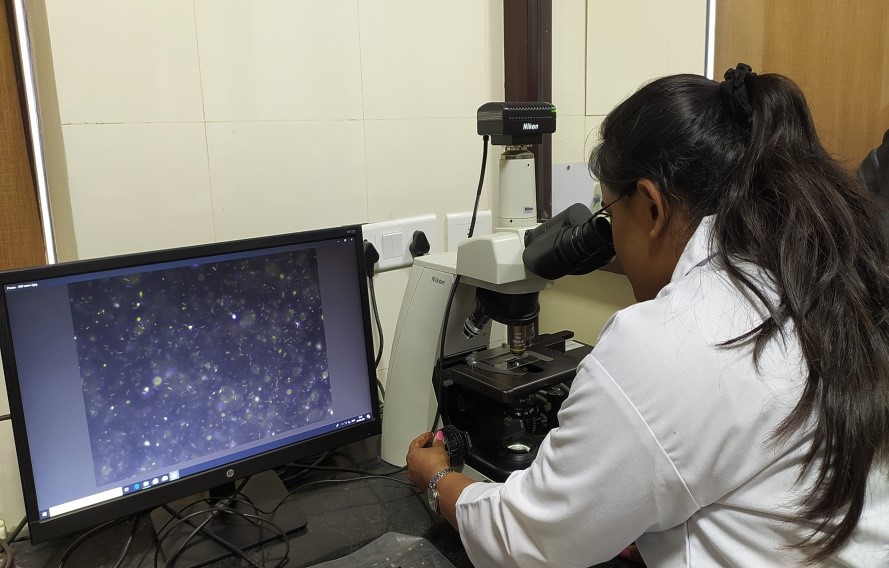
Inverted Microscope with Imaging System and Fluorescent Assembly
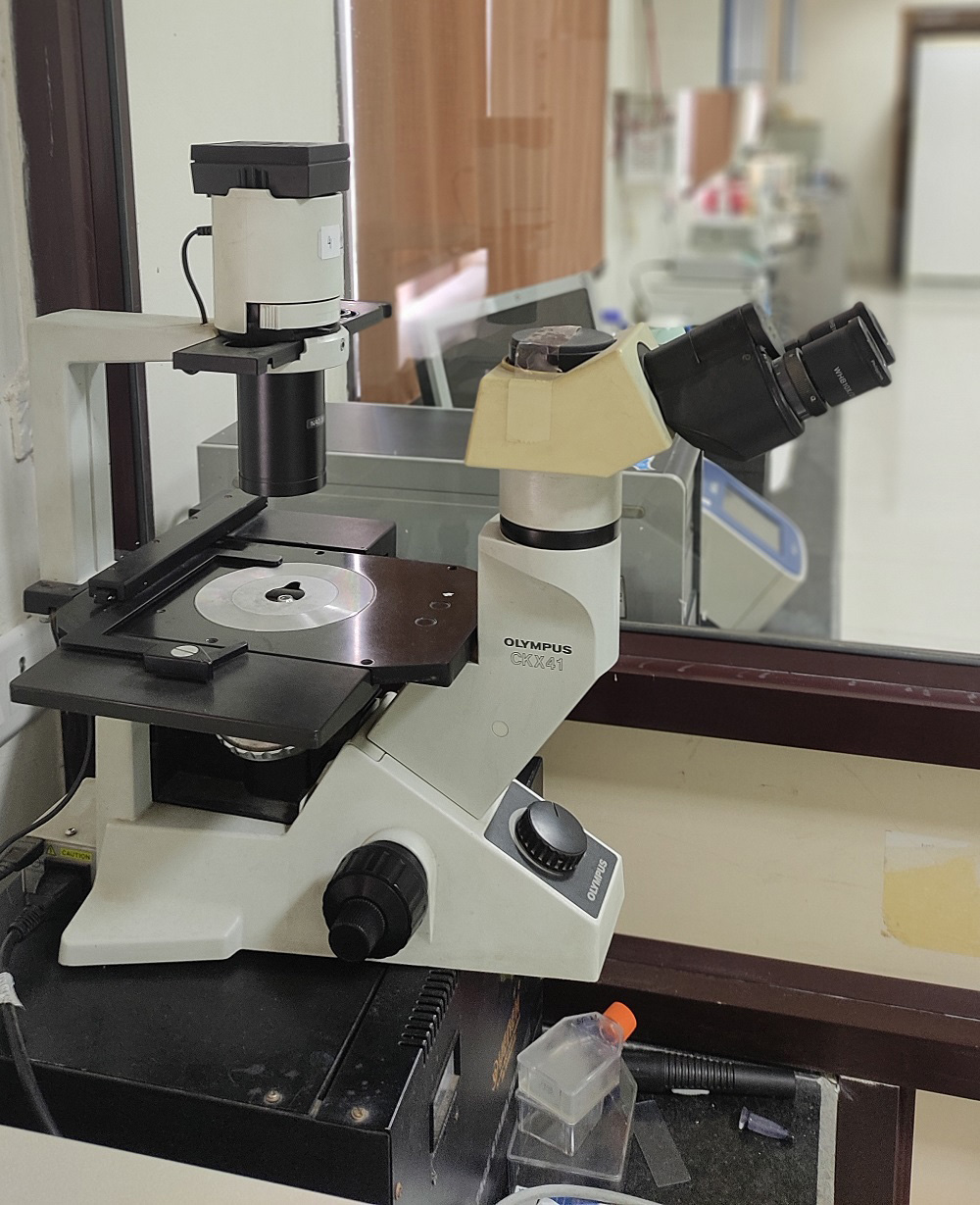
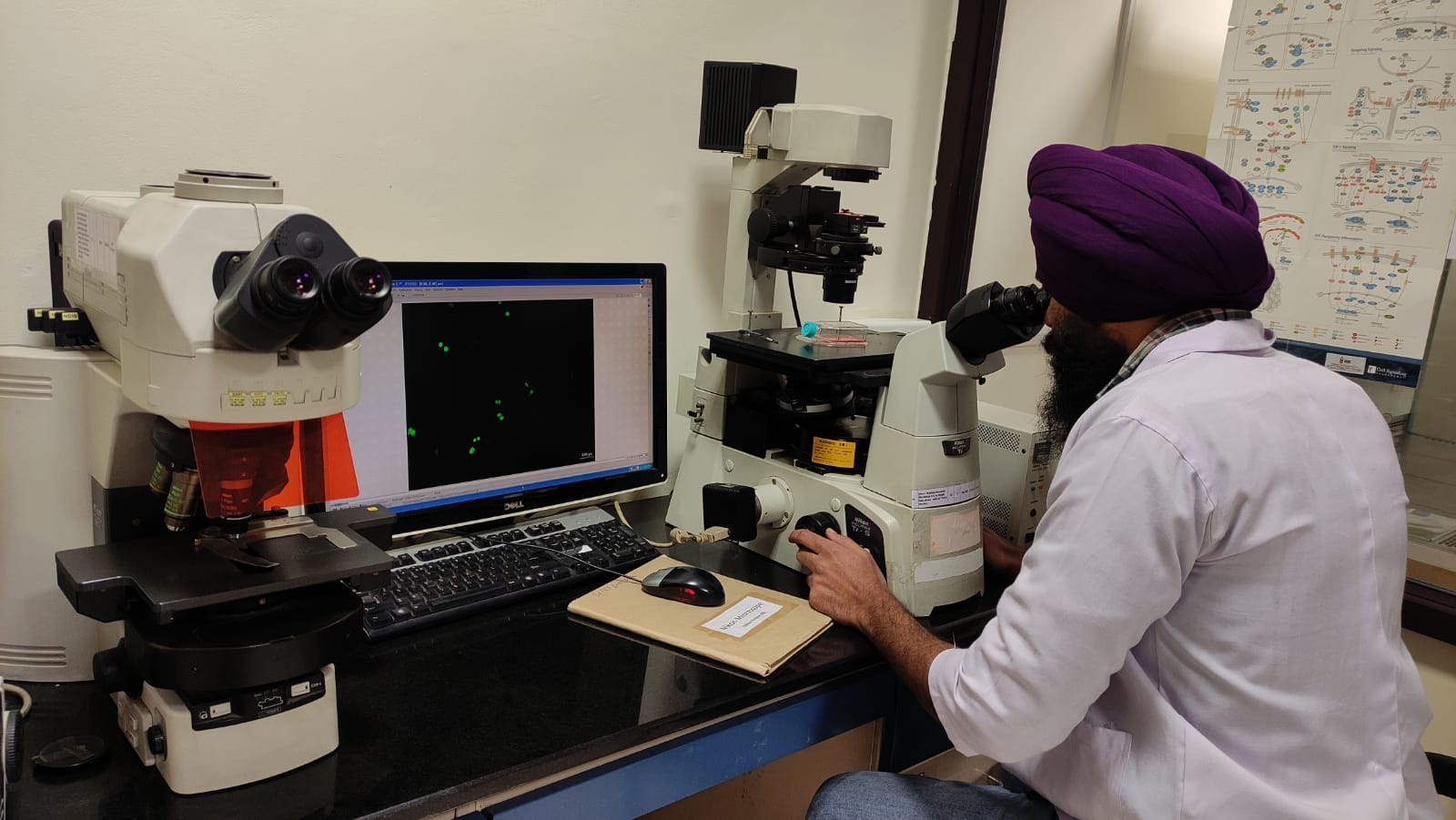
Gel Documentation systems
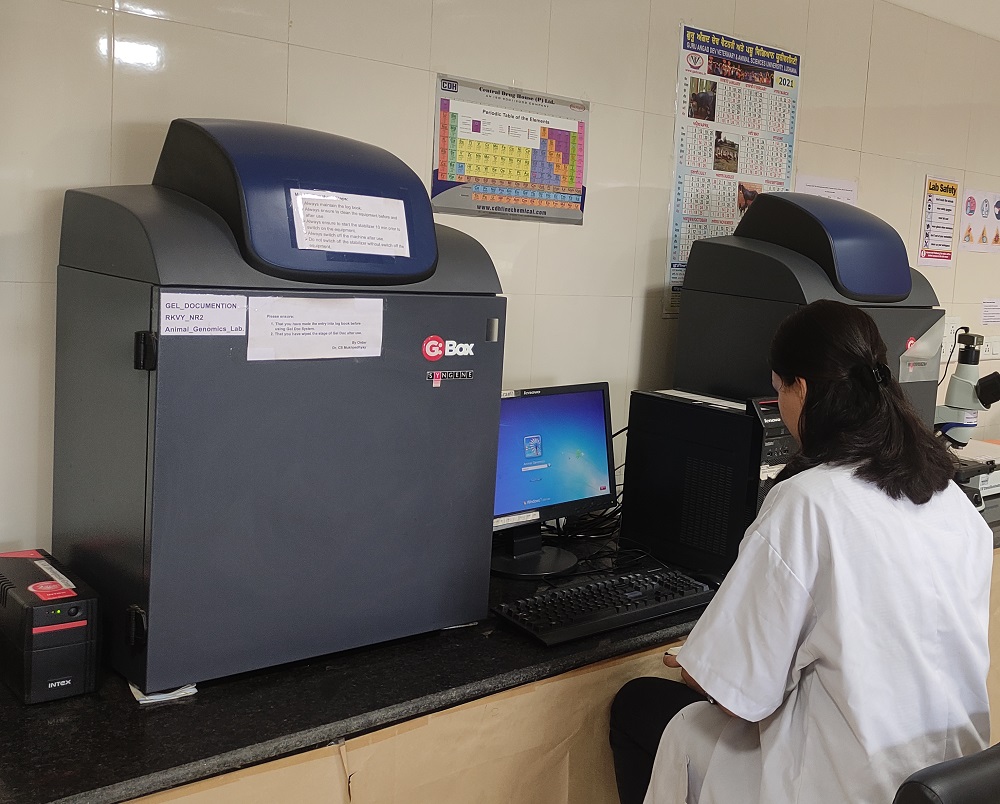
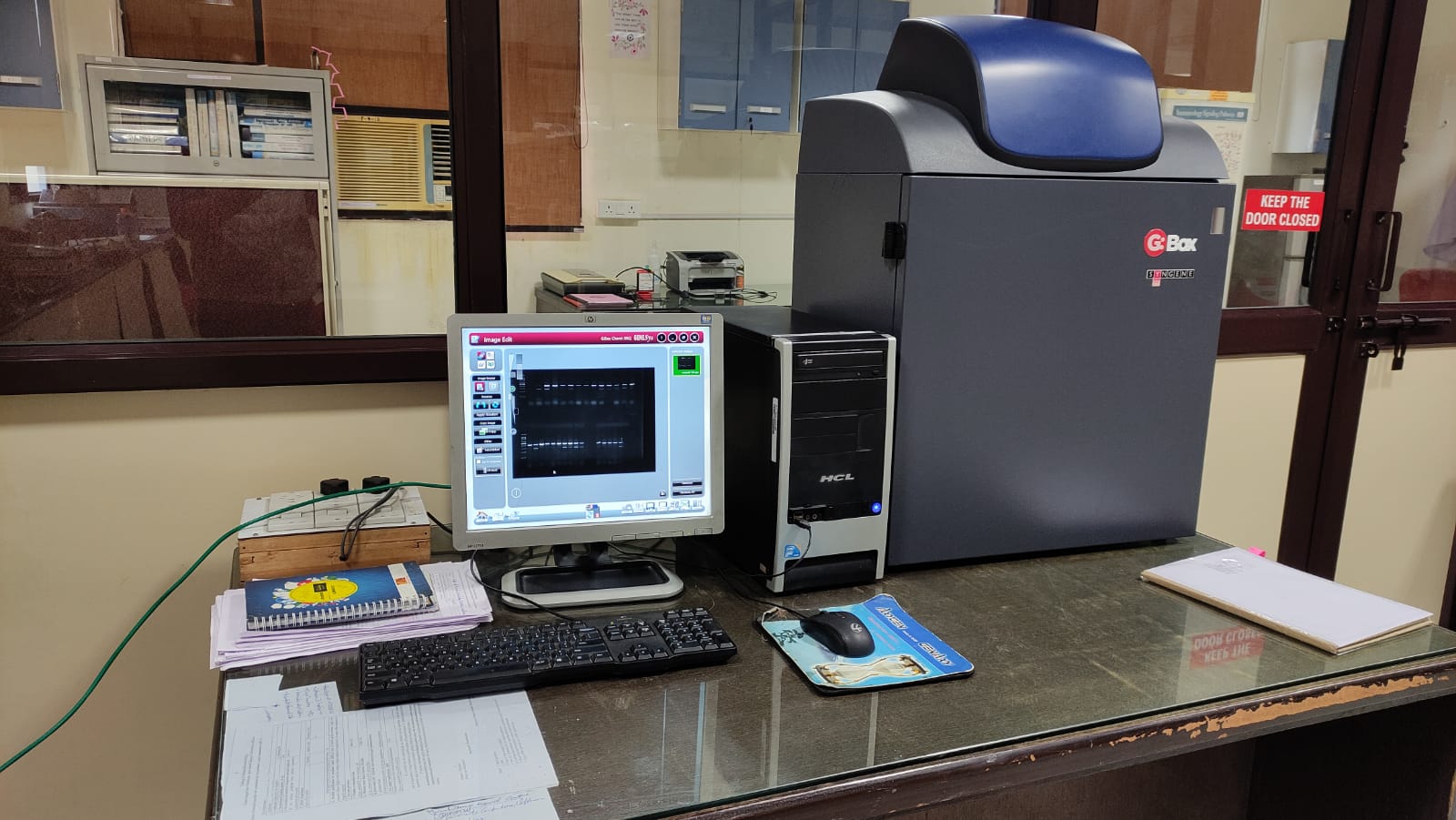
Refrigerated Centrifuge
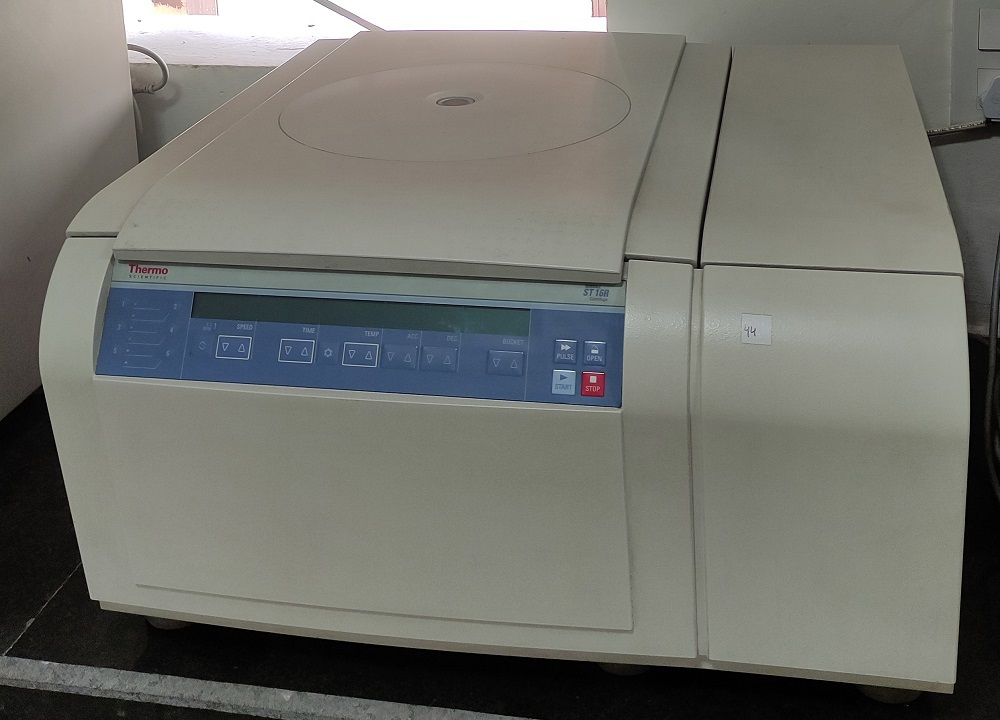
Micro Ultracentrifuge
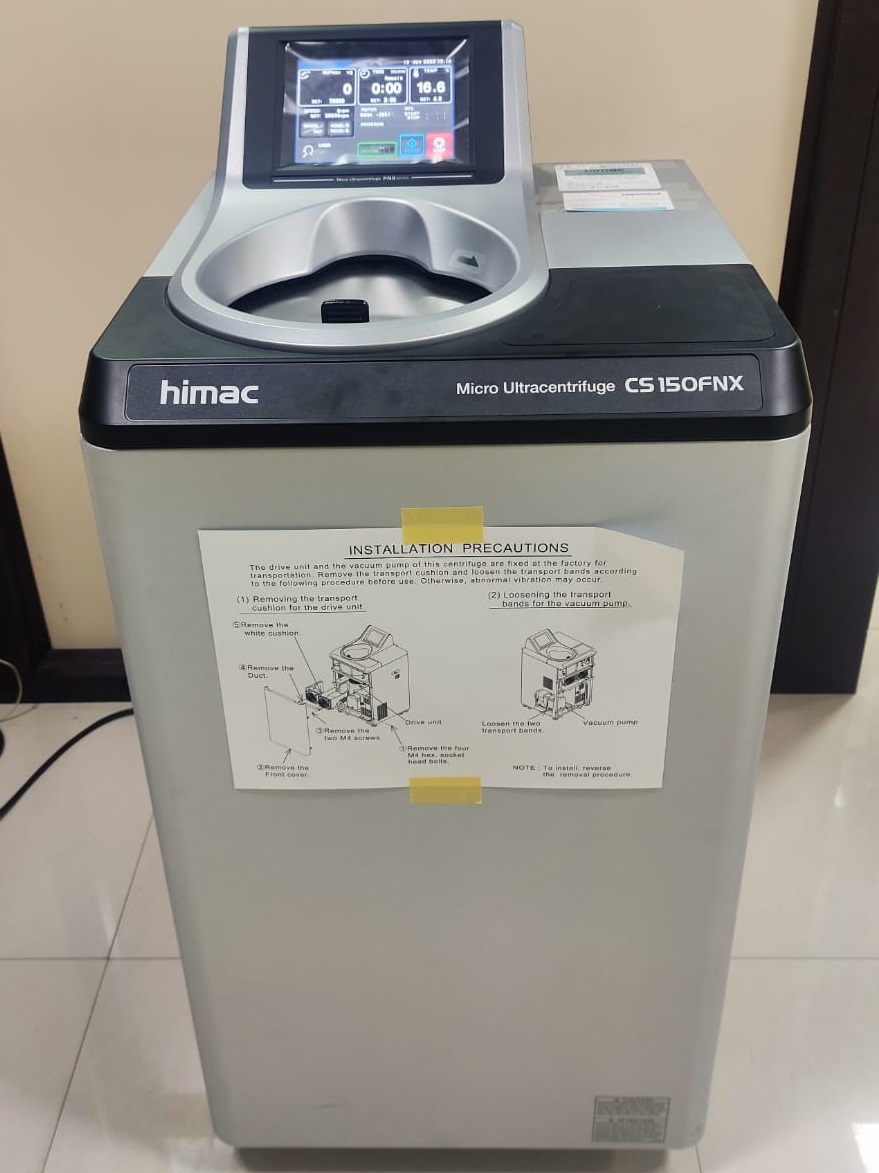
Rotary-Microtome with dispensing system
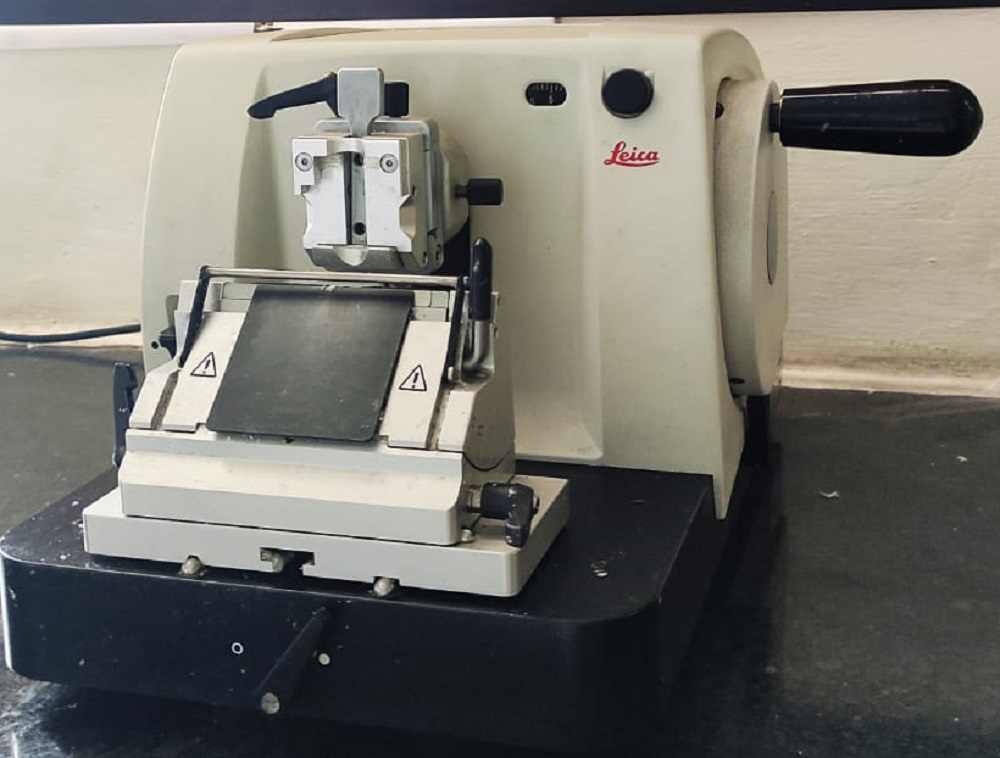
Bio Safety Cabinets (Class III --01, Class-II--04)
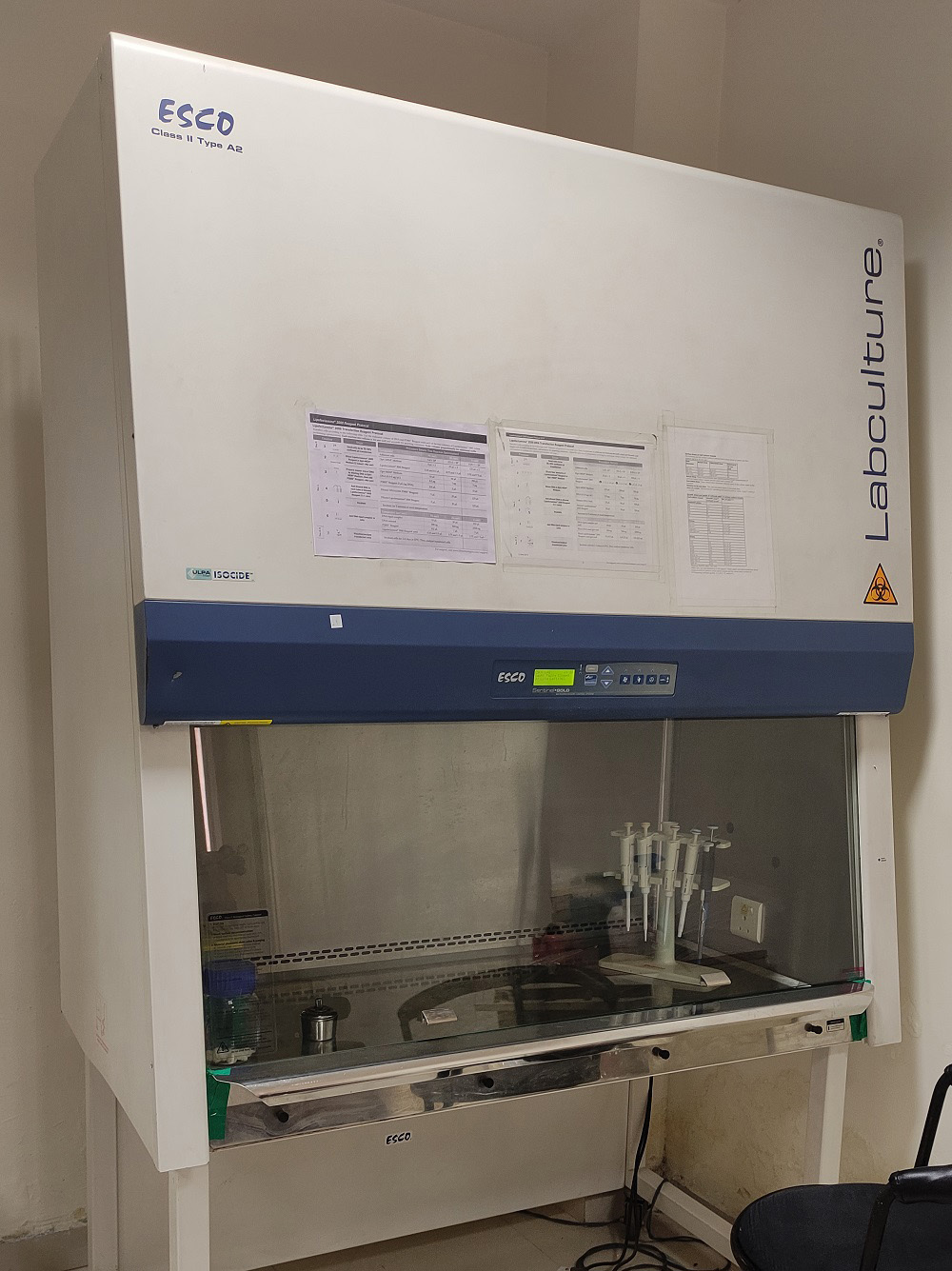
Bio Safety Lab (Class II)
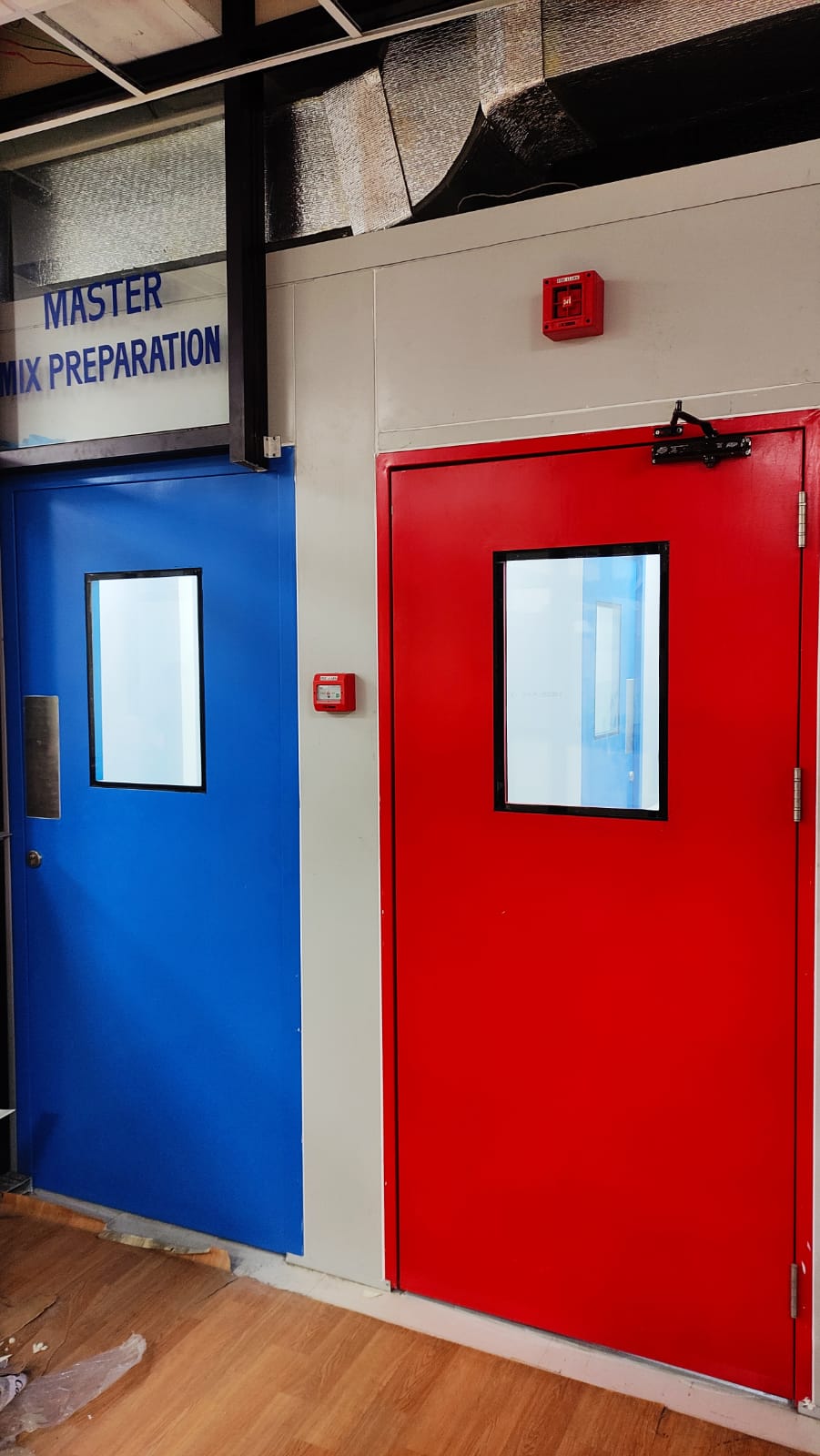
Cryo-preservation and multiple Deep Freezing (-80ºC & -20ºC) Facilities
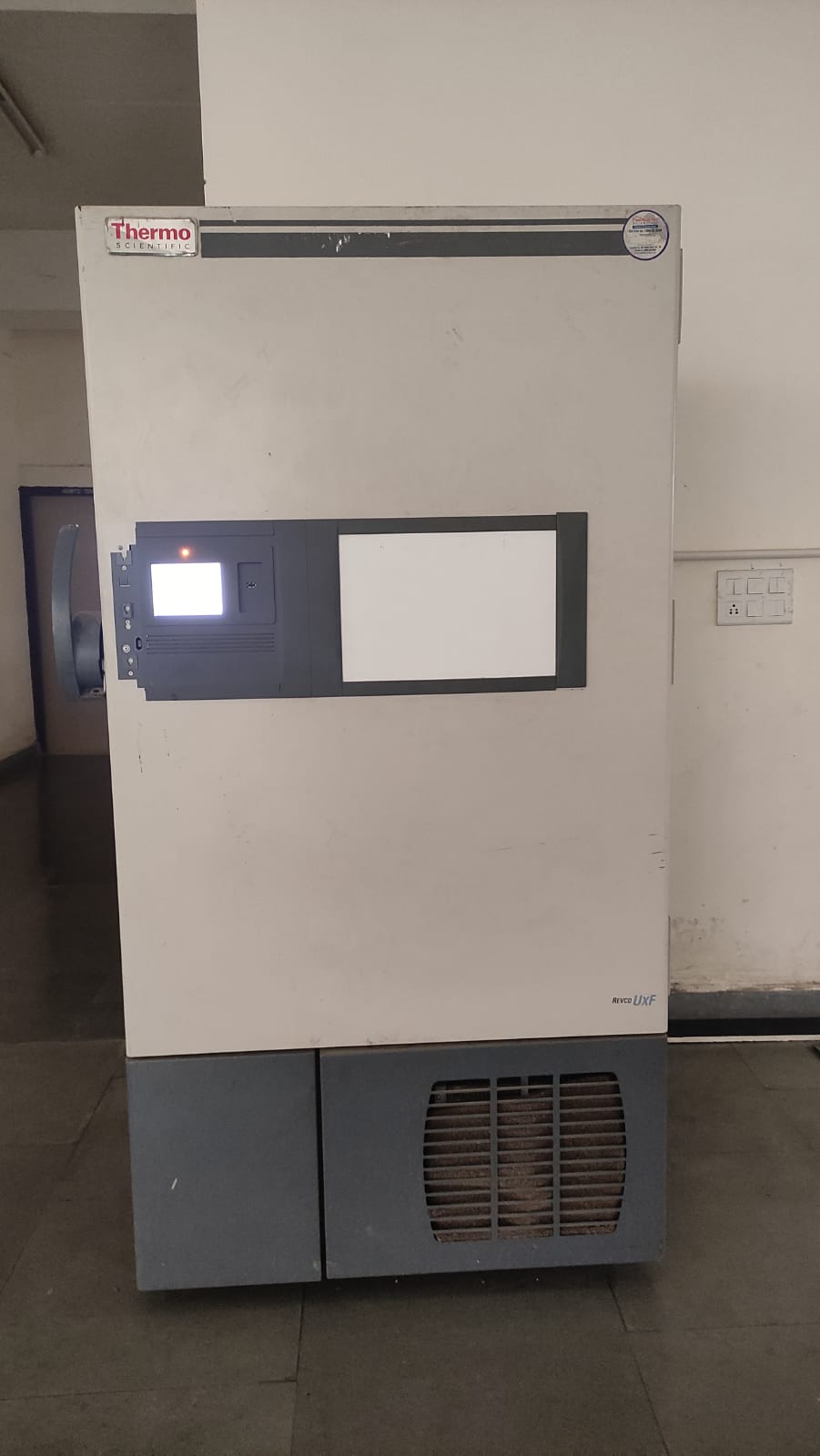
Millipore Water Purification System
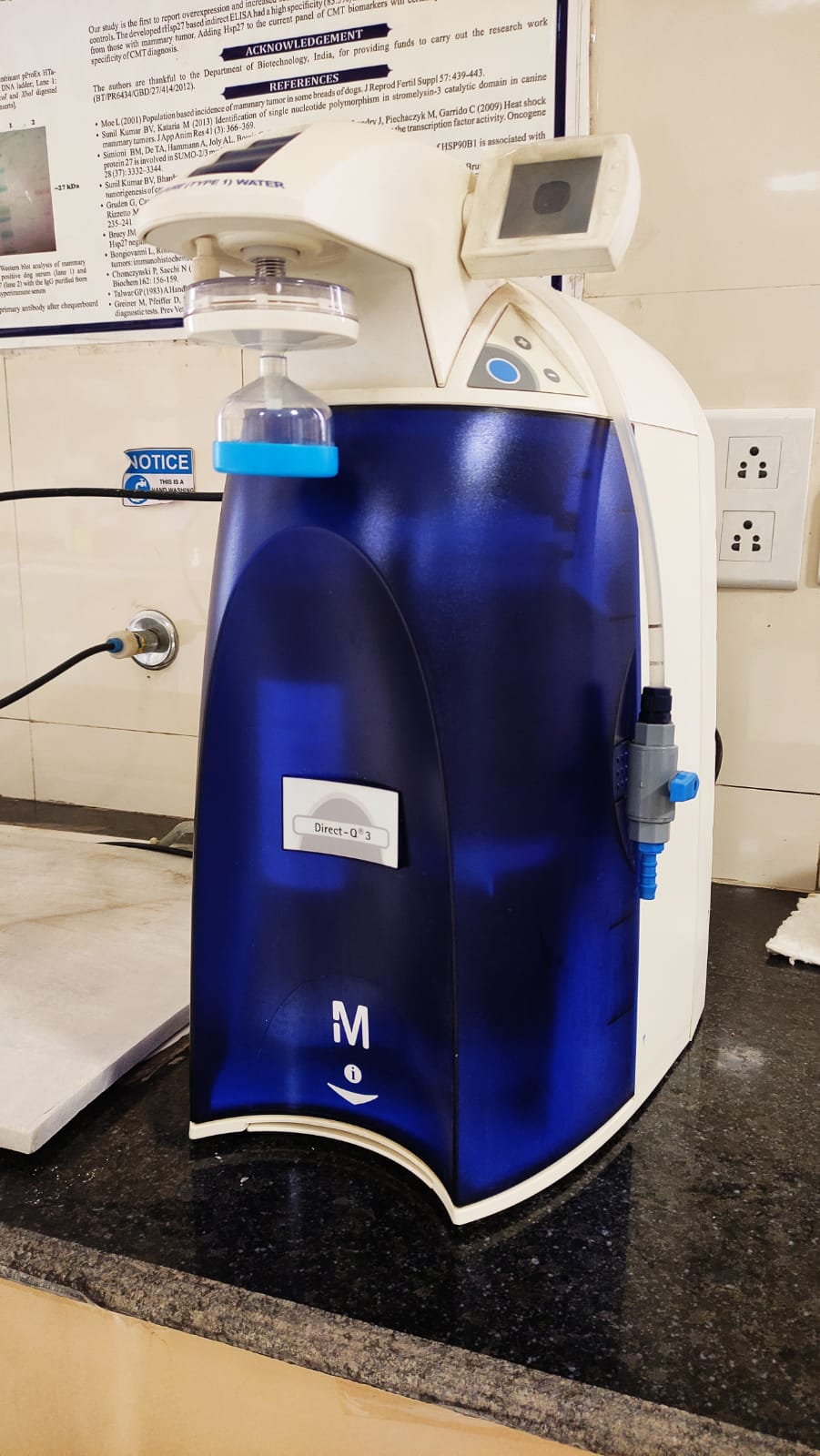
Incubators BOD/ CO2
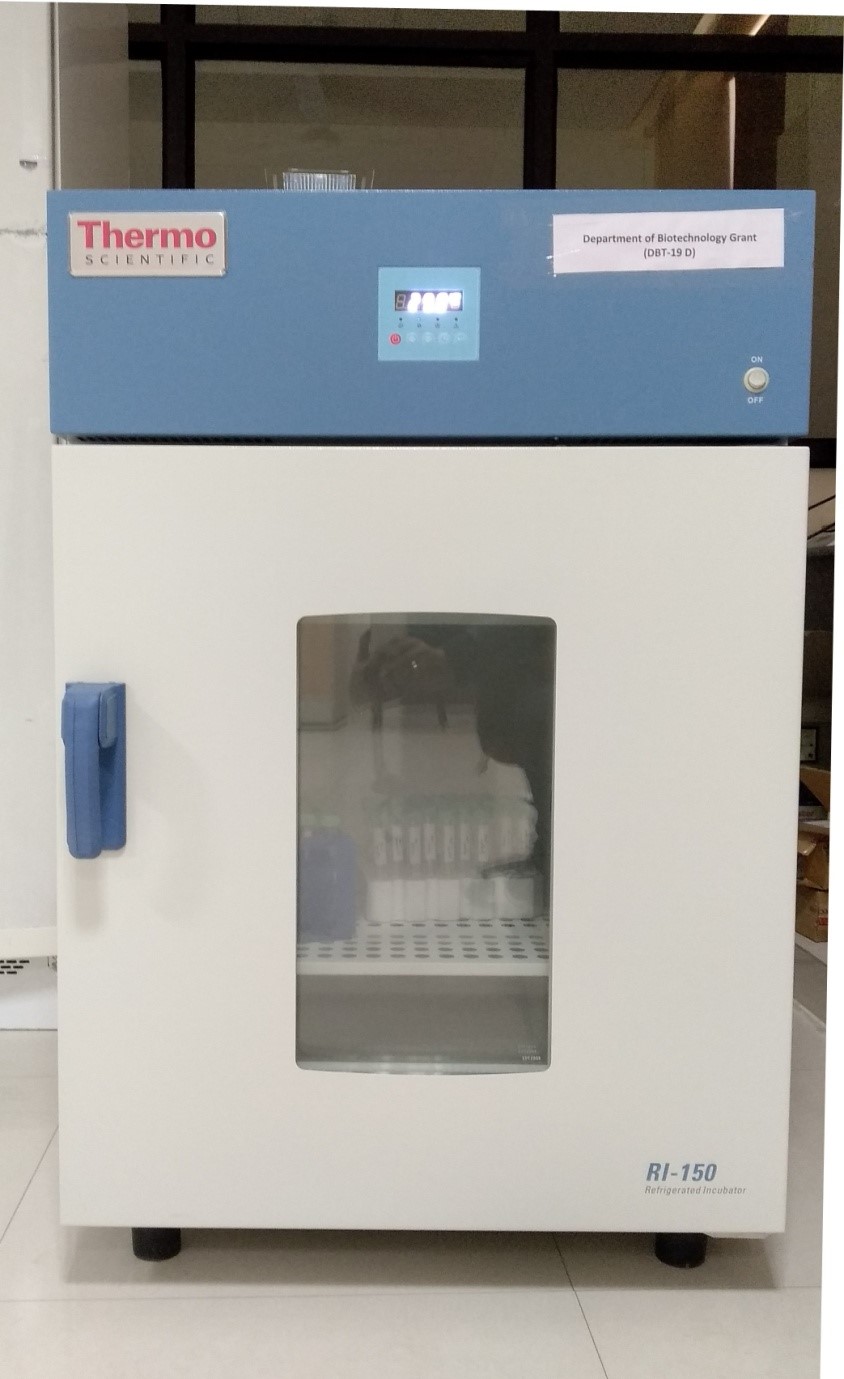
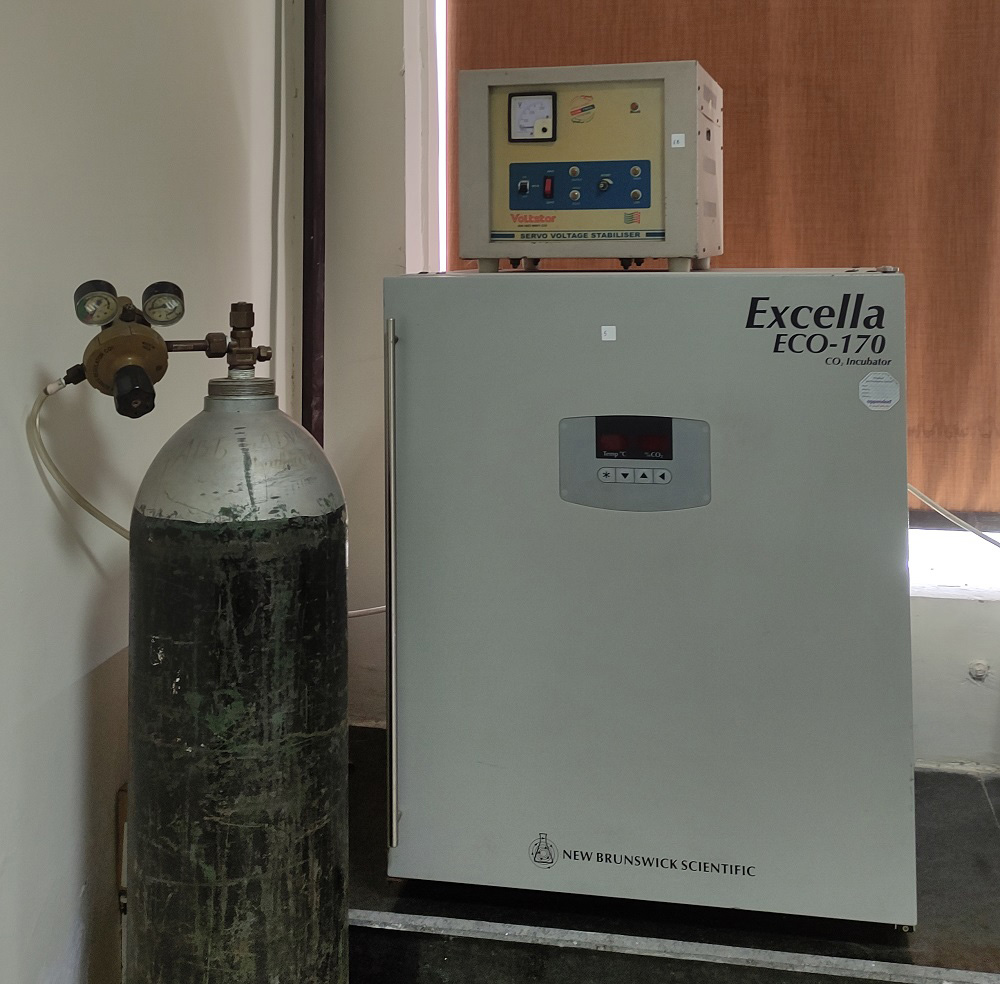
High Performance Work Station for data analysis
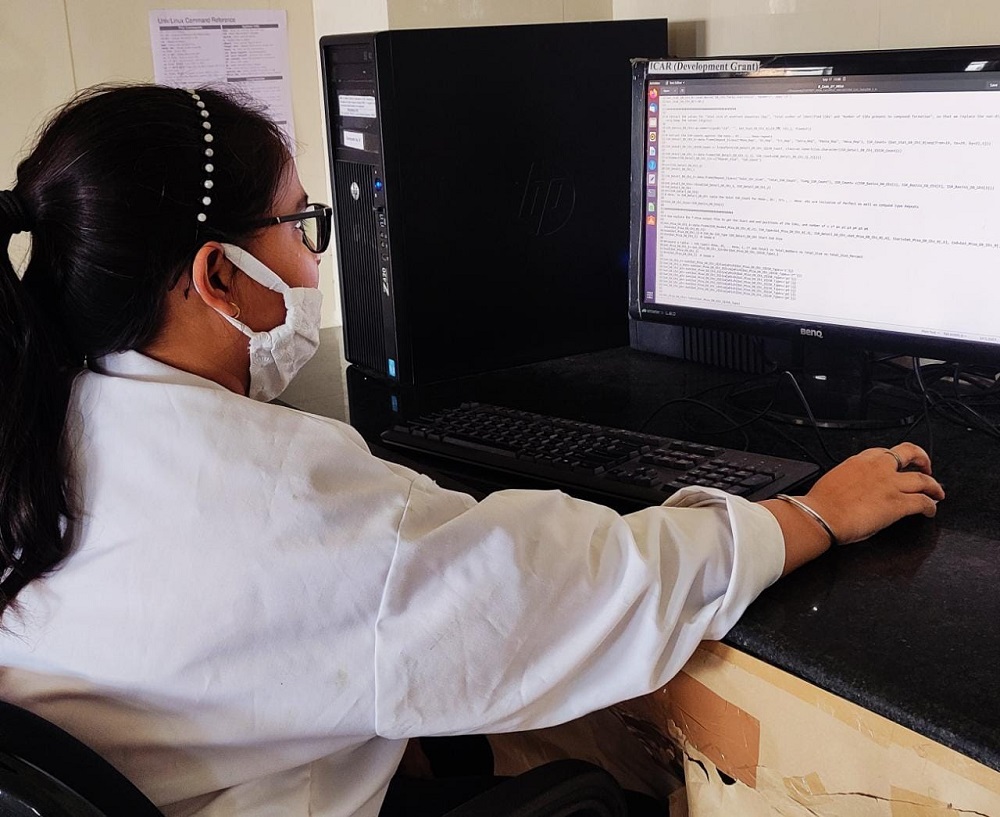
Programmable Strip Cutter
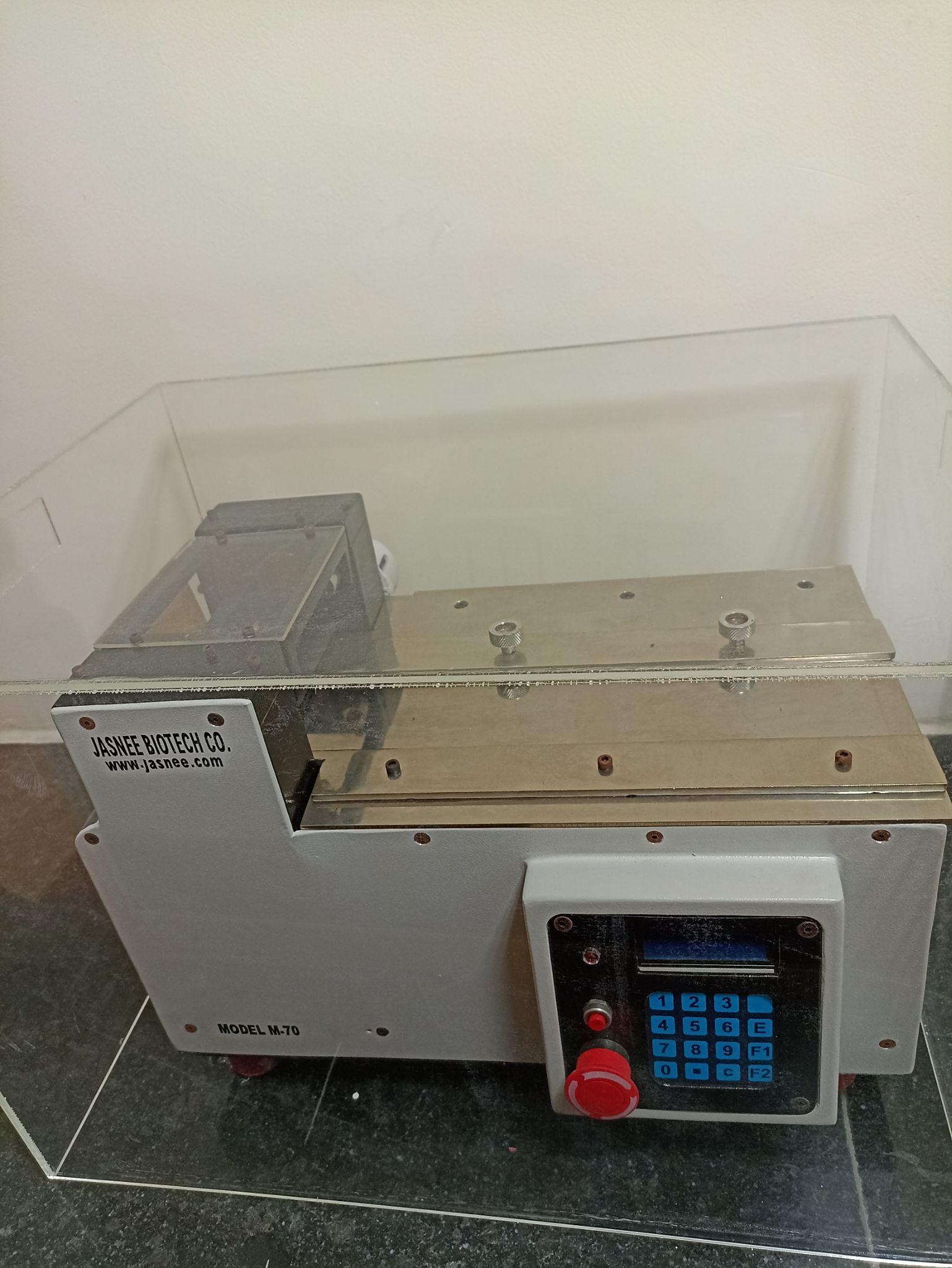
ClassII Type B2 Biosafety Cabinet
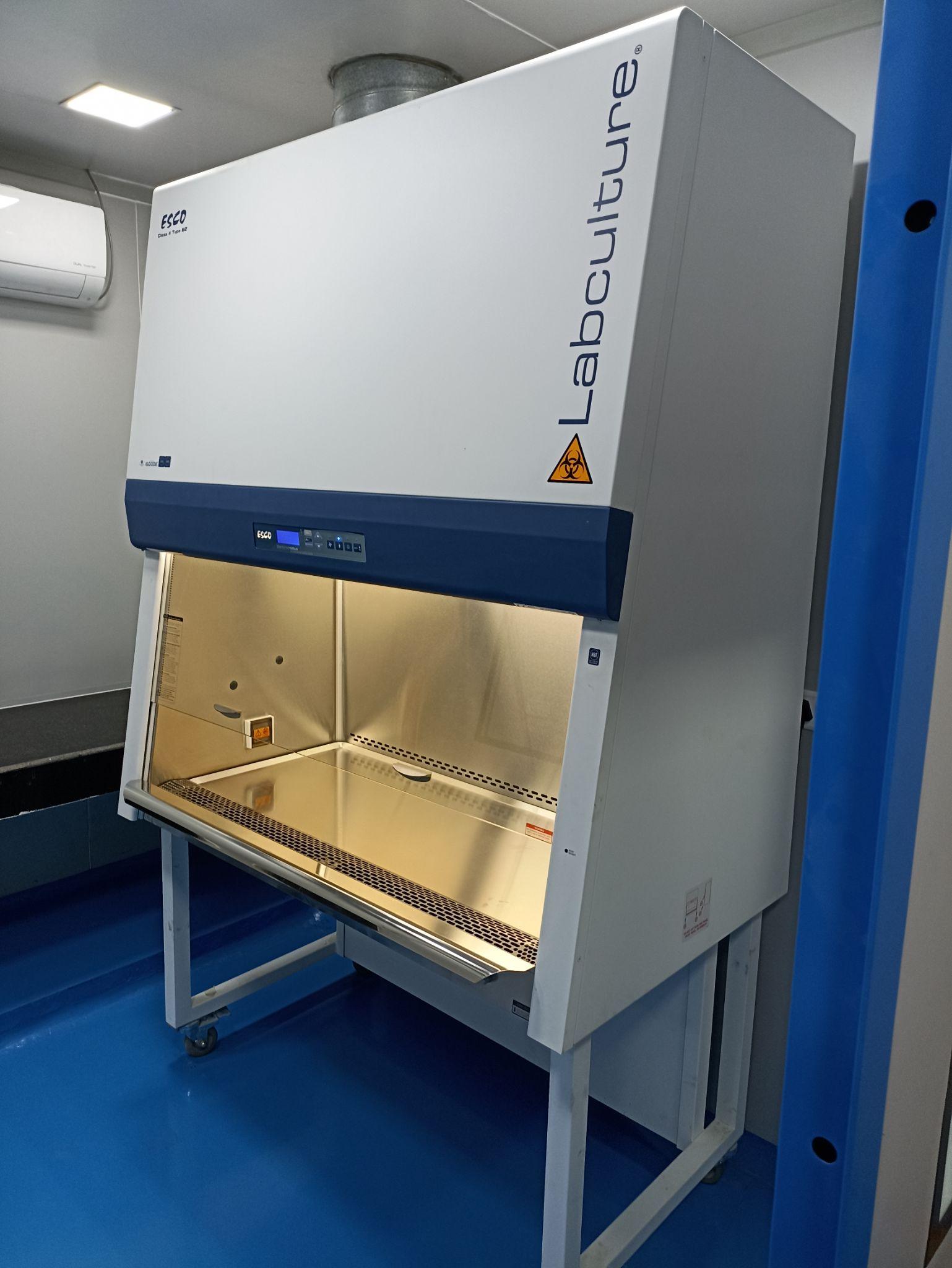
Oxford Nanopore Minion Sequencer:
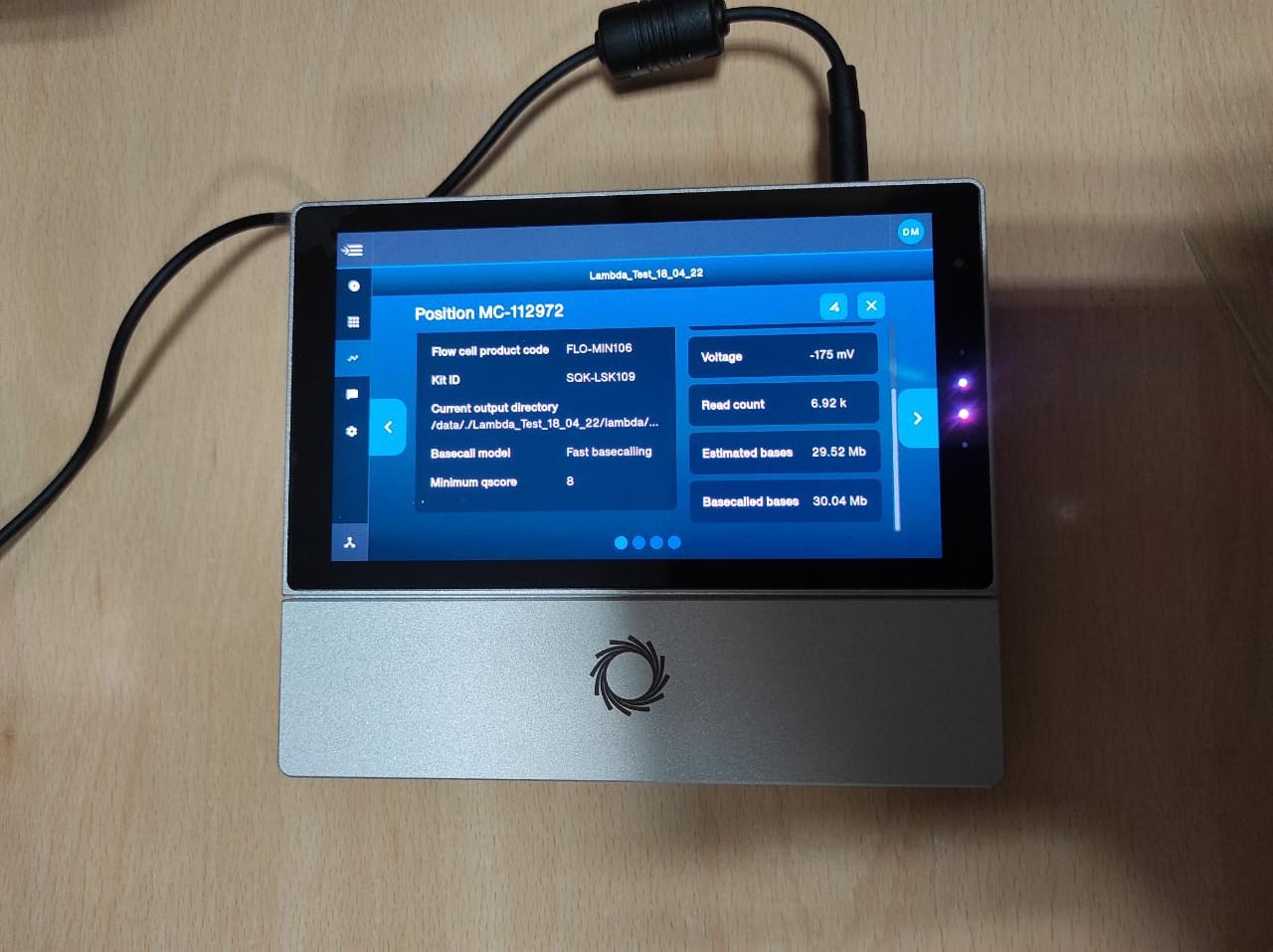
Gel Documentation System (Syngene)
.jpg)
Veriti 96-well PCR Machine (Applied Biosystems Inc.)
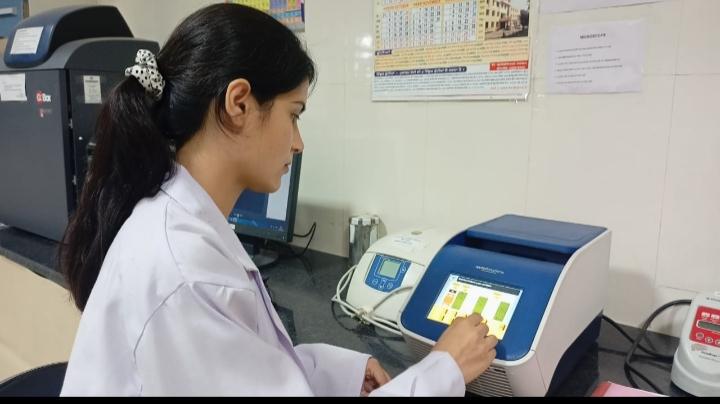
Refrigerated Centrifuge (Thermo Scientific)
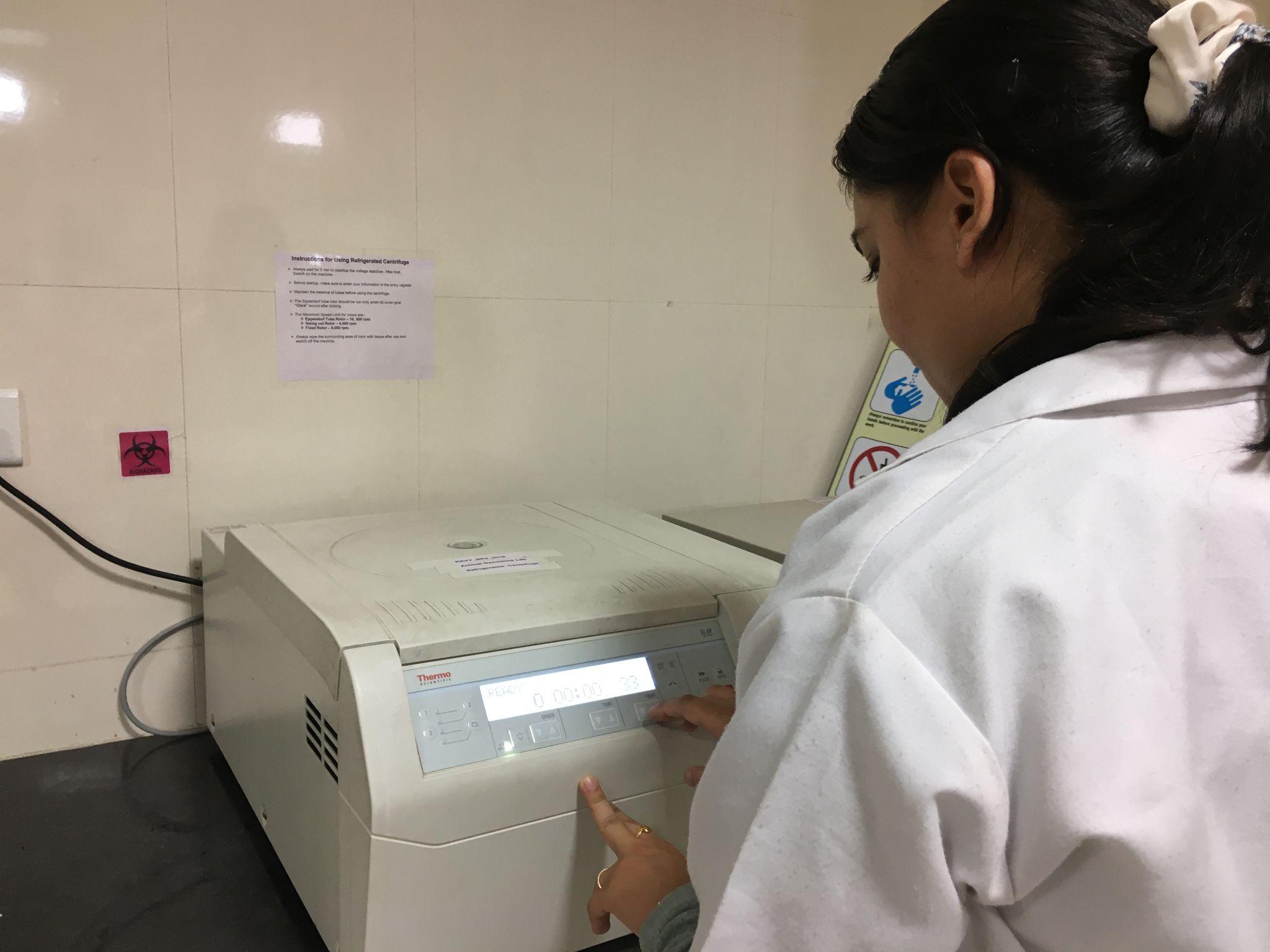
Upright Microscope with Imaging System
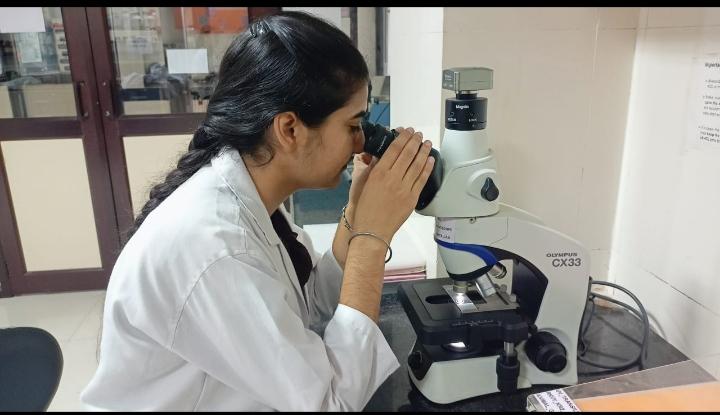
Faculty Detail

Dr. Manu M
Designation : Assistant Professor
Contact Address : Department of Microbial and Environmental Biotechnology, College of Animal Biotechnology, Guru Angad Dev Veterinary and Animal Sciences University, Ludhiana-141004
Telephone :
Mobile : +91-8650921975
Email : manumohankrishna123@gmail.com
Academic Credentials
- BVSc and AH
- Master of Veterinary Science (MVSc): Veterinary Virology (2013-2015)
- Doctor of Philosophy: Veterinary Virology (2015-2018)
Teaching appointments
- Field of Specialization: Veterinary Microbiology and Veterinary Virology
Other appointments
- Teaching: Assistant Professor, Department of Veterinary Microbiology,
- Faculty of Veterinary and Animal Sciences, Banaras Hindu University,
- VaranasiOctober 2019 - November 2022
- Research: Deputy Manager, Quality Control (Animal Health), Indian Immunological Limited, Hyderabad: October 2018-October 2019
Area of research
- Research area of interest includes virus isolation and cultivation, virus purification, virus titration, virus neutralization test, molecular virology
- animal cell culture, vaccine production, emerging infectious diseases, molecular epidemiology of animal viruses and development of veterinary vaccines and diagnostics
Ongoing projects
|
Sl. No |
Title of Project |
Funding agency |
Grant |
Role |
|
1. |
COVID-19: Reverse zoonosis and its role in re-emergence |
Department of Biotechnology, Govt. of India |
99.51 lakhs |
Co-PI |
Research honours awards
- Live attenuated indigenous Classical Swine Fever cell culture vaccine, 2020
- Competitive ELISA for the detection of antibodies against Classical
- Swine Fever Virus, 2020
- Live attenuated classical swine fever cell culture vaccine from an Indian virulent CSF virus. Indian Patent Application no. 201911046164 (Filed)
- Best Oral paper award, 13th Kerala Veterinary Science Congress, 2021
- Best Poster Award, VIROCON-2017 (Indian Virological Society), 2017
- ICAR-Senior Research Fellowship, 2015
No of publications
| Research: 15 | Extension: Nil | Books: Nil | Manuals: Nil |
|---|
Publication
- Manu M, Mahapatra CS, Pachauri R, Ompreethi B, Dhar P. Evaluation of an alternative method for determination of Protective Dose50 of Classical swine fever vaccines. Virology. 2023 Mar 7.
- Pronab Dhar, Subash Chandra Das, Manu M, Chayna Singha Mahapatra and Shyma K. Latheef. (2022). Development and validation of an in vitro titrimetric method for determination of classical swine fever viruses in PK-15 cells. Journal of Immunological Methods 508: 113321.
- Mousumi Bora, Manu M, Dayamon D Mathew, Himasri Das, Durlav Prasad Bora and Nagendra Nath Barman (2022). Point of care diagnostics and non-invasive sampling strategy: a review on major advances in veterinary diagnostics. Acta Veterinaria Brno. 91: 017–034
- Mousumi Bora, Manu M and Dayamon D Mathew (2021). Emerging viral diseases in livestock-wildlife interfaces: insights and current update. Indian Journal of Comparative Microbiology, Immunology & Infectious Diseases. 42 (2): 99-114
- Mousumi Bora, Durlav Prasad Bora, Manu M, Nagendra Nath Barman, Lakshya Jyoti Dutta, Pesingi Pavan Kumar, Suvaneeth Poovathikkal, Kuralayanapalya Puttahonnappa Suresh and Ramadevi Nimmanapalli (2020). Assessment of Risk Factors of African Swine Fever in India: Perspectives on Future Outbreaks and Control Strategies. Pathogens. 9, 1044
- Pachauri R, Manu M, Vishnoi P, Preethi BO, Tiwari AK, Dhar P. (2020). Stability of live attenuated classical swine fever cell culture vaccine virus in liquid form for developing an oral vaccine. Biologicals. 68:108-111.
- Ompreethi B, Manu M, Pachauri R, Upamanyu V, Tiwari AK, Dhar P (2020). Sequencing of E rns Gene of a Live Attenuated Classical Swine Fever Cell Culture Vaccine Virus and its Comparison with Back Passages and Other CSFV Strains. International Journal of Current Microbiology and Applied Sciences 9(8):960-968.
- Mousumi Bora, Raja Wasim Yousuf, Pronab Dhar, Manu M, Insha Zafir, Bina Mishra, Kaushal Kishor Rajak and Rabindra Prasad Singh (2019). Characterization of defective interfering (DI) particles of Peste-des petits-ruminants vaccine virus Sungri/96 strain-implications in vaccine upscaling. Biologicals. 62:57-64
- Badasara SK, Manu M, Sah V, Kumari P, Upmanyu V, Dhar P, Tiwari AK, Chander V. and Gupta, VK (2017). Replacement of Animal Model for Propagation of Classical Swine Fever Challenge Virus by Adaption in the PK-15 Cell Line. Journal of Animal Research: 7 (3): 581-586.
- Raut SD, Rajak KK, Kumar R, Gurav AM, Manu M, Dhanesh VV, Muthuchelvan D, Dhar P. and Pandey AB (2015). Detection of Classical Swine Fever Virus Antigen and Nucleic Acid on Blood of Experimentally Infected Piglets. Advances in Animal and Veterinary Sciences: 3 (5): 1-6


